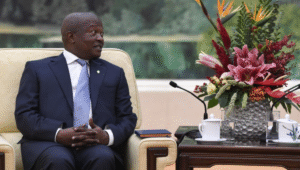The International Monetary Fund (IMF) announced on Tuesday that it has reached a preliminary agreement with Argentina for a $20 billion bailout, providing crucial support to President Javier Milei as he attempts to reshape the country’s economic structure. Although the staff-level agreement is significant, it still requires approval from the IMF’s executive board, which will meet in the coming days to finalize the deal.
This deal provides a much-needed boost to Milei’s economic agenda, which focuses on free-market austerity measures aimed at reducing inflation and stabilizing Argentina’s economy. His reforms have reversed the reckless borrowing and debt accumulation of previous left-wing populist administrations, which had led to Argentina’s repeated debt defaults. The country has had more IMF loans than any other nation.
Argentina has been under increasing pressure due to its rapidly dwindling foreign reserves. The government has imposed strict money-printing rules and used its limited dollar reserves to stabilize the peso. There were growing concerns that without securing an IMF loan, the austerity measures would collapse, leaving Argentina unable to meet its debt obligations or pay for essential imports.
The IMF loan offers Milei the opportunity to relax Argentina’s stringent foreign exchange controls, which have deterred foreign investment by preventing companies from repatriating profits. These controls, in place for the past six years, have kept the peso tied to the dollar, forcing the central bank to manage the currency carefully.
Argentina’s long history with the IMF has been fraught, with the country having taken out 22 IMF loans since 1958 and owing the organization over $40 billion. A significant portion of these funds has been used to pay back previous IMF loans, earning the institution a controversial reputation in Argentina. Many Argentines blame the IMF for the country’s economic crises, including the major default in 2001.
Despite the contentious relationship, IMF officials have praised Milei’s austerity measures, which are even stricter than typical IMF prescriptions. Milei, a former TV personality and self-styled “anarcho-capitalist,” has implemented drastic cuts, including firing tens of thousands of public sector employees, eliminating ministries, slashing education funding, freezing public works, lifting price controls, and cutting subsidies.
Critics argue that the poorest citizens are bearing the brunt of these austerity measures, with retirees particularly upset over reduced pensions, which have become a key focus of budget cuts. Labor unions have planned a 36-hour general strike to protest these policies. However, Milei’s approval ratings remain solid, likely due to his success in reducing inflation from 211% to 118% in his first year and turning budget deficits into surpluses. His efforts have boosted the stock market and improved Argentina’s country-risk rating, an important measure of investor confidence.
The IMF agreement aims to support Argentina’s stabilization and reform efforts, with the IMF acknowledging the government’s progress in controlling inflation and maintaining fiscal discipline. However, it is still unclear how much of the $20 billion loan Argentina will receive upfront, as the country seeks immediate funds to replenish its reserves.
Milei shared the IMF announcement on social media, expressing his enthusiasm with a photo of him and Economy Minister Luis Caputo celebrating the agreement.













